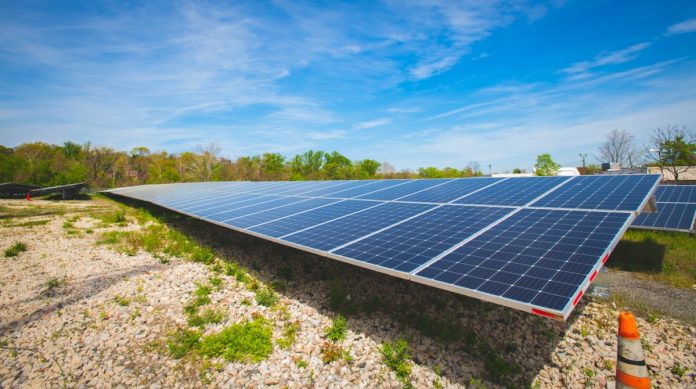Hanwha Q Cells Co., a solar power unit of South Korea’s chemicals-to-defense conglomerate Hanwha Group, brought forward operations of a US plant to take advantage of Washington’s move to regulate the products of Chinese rivals.
The subsidiary of Hanwha Solutions Corp., however, suspended production at a South Korean solar panel factory on weaker demand, industry sources said on Friday.
Hanwha Q Cells, the largest residential and commercial solar module maker in the US, started operations of a plant with an annual 2-gigawatts (GW) of capacity in Dalton, Georgia, last month, according to sources in Seoul. The company had initially planned to complete the construction of the facility at the end of this year.
That came as demand for solar panels made in the US surged after the country decided to impose heavy tariffs on products manufactured by Chinese companies in Southeast Asia. Such products accounted for 79.3% of total US imports of solar panels in the first quarter.
In addition, Washington provides tax credits for solar energy projects in the US, causing companies to increase production there.
PRODUCTION SUSPENSION IN SOUTH KOREA
Hanwha Q Cells was set to suspend manufacturing at a solar panel factory in South Korea while cutting runs at another plant as softer domestic demand has hit product prices. The government is pushing the expansion of nuclear energy with potential plans to build more atomic power plants to meet surging electricity demand.
The company decided to stop operations at its facility producing 2.9 GW of solar modules a year in Eumseong, about 100 kilometers (62 miles) south of Seoul. It already lowered the utilization rates of another factory in Jincheon, about 18 km away from the Eumseong factory, which manufactures 2.9 GW of modules and 5 GW of solar cells.
“We will suspend the Eumseong plant, but we have yet to decide on a detailed schedule such as when to stop and resume operations,” said a company source.






